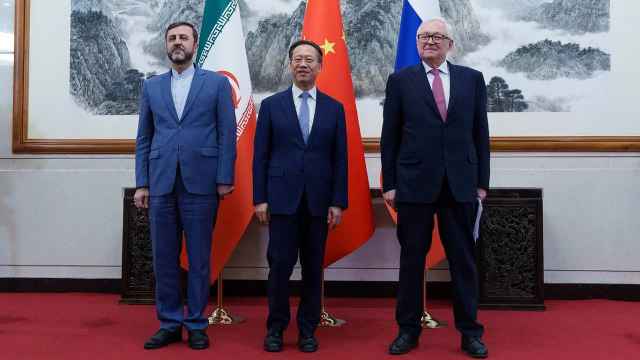
Irina Kurganova
Business Development Director
ManpowerGroup Russia
As the global economy continues to improve, the talent shortage will become more pronounced and businesses that dramatically reduced their work force during the recession will be competing for talent in a complex environment. Faced with the most acute talent shortage since 2007 — before the start of the world's first global recession — one in three employers worldwide confirm that they cannot find the talent they need to fill key vacancies within their organization.
According to ManpowerGroup's 2011 Annual Talent Shortage Survey of nearly 40,000 employers across 39 countries and territories, the overwhelming majority (89 percent) of companies cited a lack of experience, technical skills deficiencies or poor soft skills among available candidates as a bar to employability. Workplace skills such as collaboration, critical thinking and agility are critical to generate productivity and innovation. Therefore the key question becomes: How can employers "manufacture" talent for a new world era — the Human Age — where it will be the power of human potential that drives companies and communities forward?
Employers must reconsider their work models and people practices and develop a robust work force strategy that in a sense "manufactures" the talent they need to execute their long-term business strategy. Sticking to old assumptions on how to structure and organize work, how to develop and incentivize talent — and where to source it — will leave businesses in peril.
While not all employers worldwide are feeling the pain associated with the global talent shortage, it is likely that they will feel pressure soon. Business leaders worldwide are grappling with new demands for productivity and innovation, and in this challenging environment they are discovering that only talent can deliver it. Talent has become the key competitive differentiator.
In the past, employers have adopted a "just in time" approach to hiring because the talent was always there when they needed it. Today, employers can no longer afford to do this because external forces such as decline of the working-age population make it an unviable long-term solution. Companies that continue to take this shortsighted approach will jeopardize the vitality of their business, because employers in the short term are faced with only three choices:
- Settle for available candidates. They can continue with the "just in time" approach to hiring, recruiting from the pool of available workers who likely do not present a satisfactory skills match, but will allow them to quickly ramp up their work forces.
- Find the teachable fit. Hire (or promote from within) those who may not possess all the technical skills necessary to perform a business-critical role but have the right mind-set and "soft" skills that they represent the aptitude and capability to develop into the position.
- Stretch the existing work force. Drive the current work force to take on more responsibility to improve productivity and efficiency. Employers that choose to stretch their existing work force would be wise to consider a recent study by Right Management, ManpowerGroup's global leader in talent and career management, which revealed that 84 percent of employees are actively seeking a new position. Increasing workloads have resulted in a discontented and disgruntled work force. Currently, it is not unusual for one person to be doing three "jobs," but this situation is not sustainable. ManpowerGroup's Second Quarter 2011 Employment Outlook Analysis shows that overtime has continued to rise, meaning employees and employers may be reaching their "tipping point," forcing companies to hire more workers.
In this situation organizations need to recalibrate their mind-sets to move away from only hiring just-in-time talent to predicting long-term talent needs. Their approach must go beyond an internally focused work force plan to a holistic work force strategy that balances external supply with internal demand. According to ManpowerGroup research, only 13 percent of HR leaders say they have a documented work force strategy beyond their business plan. A robust work force strategy should be based on the company's business strategy and should identify the gaps between the talent that is available and the talent that will be needed. Further, it should consider important external factors that could affect future talent sources, such as demographic shifts, the rise in emerging markets and rapidly evolving technology.
It would be unthinkable for a company not to consider the quality and availability of raw materials when developing a long-term business strategy. For example, a beverage manufacturer would not plot its future growth strategy without identifying a sustainable supply of aluminum to manufacture cans. Businesses must now look at their work force through a similar lens. They cannot assume that the right talent will be where and when they need it; yet, employers have always operated under this assumption. The "manufacturing" of talent is not an overnight process; it takes time to develop and companies must strategize accordingly.
With 28 percent of employers worldwide reporting a lack of experience among candidates as a key barrier to filling vacancies, organizations need to update their people practices and approach to training and development by focusing on experiential and iterative training. This is a decided shift from traditional programs, which are historically a one-size-fits-all approach, provide little practical application, can be costly and time-consuming and provide no direct benefit to the company. Lifelong learning is crucial to ensure that the skills and competencies of employees are aligned with changing needs of business. As part of developing a robust work force strategy, employers should adopt a one-size-fits-one approach that is tailored to the employee and helps build the skills that are most valuable to the company. Engaging employees on "stretch projects" not only achieves the business' desired outcomes but also develops the individuals and helps them achieve their full potential.
What can individuals do to navigate this worker supply and talent demand conundrum? With the velocity of change shortening individuals' skills lifecycles, maintaining an updated CV is no longer sufficient. It is better to create and regularly update an "Individual Employability Profile" that is aligned to the skills required by the labor market. In this way, individuals will be better prepared to identify where gaps exist in their skills or experience and look at ways to fill these gaps. Each year candidates should aim to enhance their employability profile to reflect how they are learning, growing and developing and keep pace with the velocity of change that is impacting employers' needs. Each year individuals should ask themselves, "Am I growing my skills?" If the answer is no, they should consider training and development in their field or work to develop their workplace skills. This kind of proactive approach will help individuals remain competitive and judge whether their spectrum of skills is still desirable at the wage rate they are seeking to ensure they remain an attractive prospect to potential employers.
A Message from The Moscow Times:
Dear readers,
We are facing unprecedented challenges. Russia's Prosecutor General's Office has designated The Moscow Times as an "undesirable" organization, criminalizing our work and putting our staff at risk of prosecution. This follows our earlier unjust labeling as a "foreign agent."
These actions are direct attempts to silence independent journalism in Russia. The authorities claim our work "discredits the decisions of the Russian leadership." We see things differently: we strive to provide accurate, unbiased reporting on Russia.
We, the journalists of The Moscow Times, refuse to be silenced. But to continue our work, we need your help.
Your support, no matter how small, makes a world of difference. If you can, please support us monthly starting from just $2. It's quick to set up, and every contribution makes a significant impact.
By supporting The Moscow Times, you're defending open, independent journalism in the face of repression. Thank you for standing with us.
Remind me later.





